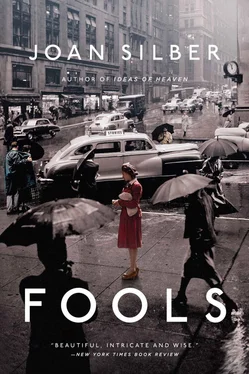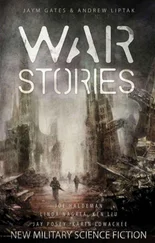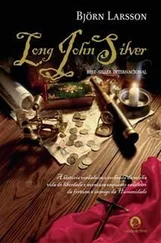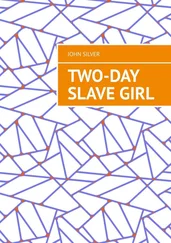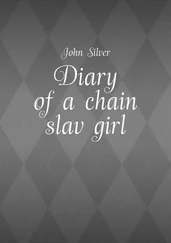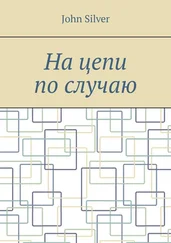Later she wondered if she had made a mistake. She’d come to New York to forget how much money she’d lost, and she had just managed to dole out another wad. She felt preposterous, an old puppet of comic twists. He had been dogged with her, in his nice-boy way, and then she had turned around and surprised him. Which she still knew how to do. She had known how to wait before she caught him off guard.
What an odd story she had to tell, when she got back to Paris: she’d come all this way to drop a bundle of money on poor people in South Asia. People she’d never met! She’d never done such a thing in her life. Never too late! She could tell the story in a way that didn’t make her look entirely foolish. Or she could keep it to herself.
Now she was a friend to lepers: she was getting used to the idea, she liked it. So this was the end to her time in New York, an ugly and interesting city. Une histoire qui finit bien . Rudy, that awkward boy, was probably being congratulated by the staff in his office. Maybe they were toasting her with little plastic cups. To Liliane! She hoped he was leading the toast. Despite the rudeness of his not having hugged her goodbye this time.
She wanted to tell Ahmed what she had done. He would have thought well of her for it, would have gotten that look of beaming pleasure on his face — he tended to applaud people who acted rashly out of their better natures. He liked nothing better than that, and would not have allowed anyone to see anything ridiculous in what she’d just done. And who would, who in the world? She had never in her life been someone people laughed at.
For their good advice and great generosity, I want to thank Andrea Barrett, Myra Goldberg, Kathleen Hill, Margot Livesey, and Chuck Wachtel. I am grateful, as ever, to my agent, Geri Thoma, and to my new editor, Jill Bialosky. For their helpful conversation, a thank you to Elspeth Leacock and Claudia Leacock. Special thanks once again to Sharon Captan for her friendship.
The story “Fools” appeared previously in Northwest Review , “Two Opinions” and “Better” appeared in Epoch , and “Buying and Selling” appeared in Agni . “Two Opinions” is included in The PEN/O. Henry Prize Stories 2012 . "Fools" is included in New America: Contemporary Literature for a Changing Society , ed. Holly Messitt and James Tolan (Autumn House, 2013).
Additional Praise for Fools
“The linked characters in Joan Silber’s collection Fools . go from the fiercely principled (young anarchists in 1920s Greenwich Village) to the fervently hedonistic (a newly married hotelier’s son who can’t resist temptation). But it’s those who admit their ambivalence — such as the daughter of a conscientious objector whose life detours from the wifely domesticity she envisioned — who approach true dissidence.”
— Vogue
“Elegant. Timely.”
— Village Voice
“A memorable meditation on work, religion, love, and the search for personal integrity.”
— Booklist , starred review
“Powerful and moving. Recalls Jennifer Egan’s A Visit from the Goon Squad in its novelistic cohesion of multiple sprawling tales.”
— Library Journal , starred review
“Joan Silber’s stories are like compressed novels. They are interlocking tales that fill in the history of revolutionary politics in the twentieth century.”
— Edmund White
“ Fools is astonishing for its range, for its sweeping sense of time and place, and most especially for its deep insight into the way small choices can circle out to shape lives, and even human history. This is a beautiful book and an important literary achievement.”
— Dan Chaon
“Joan Silber’s stories charm us. And amuse us. And engage us. And move us. And even enlighten us. Fools embraces us all.”
— Amy Bloom
“Joan Silber is one of the wisest, finest, most capacious observers of the human condition writing now. We should all be as heartbreakingly foolish and beautiful as the characters in this collection. Silber understands them inside out, and brings them close to us, as no one else can.”
— Stacey D’Erasmo
“ Fools is a unique and fascinating collection that celebrates not so much a place or a family or a single life as it does an idea — anarchy — as it runs through three generations of loosely connected people. The collective vision this provokes is what makes the book intellectually satisfying; the separate lives it convincingly displays are what move the heart.”
— Antonya Nelson
“In Joan Silber’s dazzling new story collection, written in elegant prose and with clairvoyant wisdom, the loves and aspirations, both spiritual and material, of six very different people reaffirm in unexpected ways the fallibility and the essential sameness of our human condition.”
— Lily Tuck
“ Fools is a wonderfully winning exploration of impetuousness in all of its appalling and appealing forms, and its deftly interconnected stories are devoted to those dreamers who act rashly out of their better natures, who never quit asking the world Can’t you do better than that? — a question certain to become increasingly urgent as this twenty-first century progresses.”
— Jim Shepard
“ Fools is great fiction. Here are anarchists and pacifists, protesters in causes to do with freedom and equality, causes to which these self-aware men and women devote themselves — or not. It is impossible not to be enthralled.”
— Christine Schutt
“I loved Fools . The stories always surprised me, with the narratives unfolding as if in real time, and then turning unexpected in so many ways, twisting into stories that felt like remembered history, but with such added emotion that I thought about the characters for several days afterward as if they were here in my house.”
— Susan Straight
NOTE FROM THE AUTHOR
My last three books have been linked stories, and when I give readings, often somebody in the audience asks, “Do you plan all the stories in advance or do you just make them up as you go along?” When I hear myself say, “I just make them up,” I sound very carefree and irrepressibly inspired, which is unfortunately not true.
I start with a first story and then I keep digging for routes to investigate further what it’s about. In Fools , the first story came after a trip to India, a gorgeous and very disturbing place. One consoling thing for me was seeing that every city seemed to have a Gandhi museum — Gandhi being the great figure of visionary stubbornness. I pondered whether America had anyone like Gandhi, and I thought of Dorothy Day, famous Catholic radical, who began as a Village anarchist, and I set my story in her world of anarchists in the 1920s. Anarchists were considered “fools” for their dedication to ideas — and for the next stories, I started to think harder about how people live for ideas (and why we think money or love can let us live without them). In this form I’ve come up with, characters who are hateable in one story can be humans we’re allied with in another. This is very important to me.
DISCUSSION QUESTIONS
1. In what different ways are characters in the book fools? Does persisting with their folly make them wise? The author has said that when she was working on the book, she would tell people its title and then say, “But I mean fools in a good way.” What does she mean by this?
2. Many of the stories take place over a long span of time, as characters progress, fall back, and go forward again. A short story doesn’t often cover many years. What techniques does Silber use to manage time? Which stories are most striking in their use of time? Why would Silber want to do this?
Читать дальше
